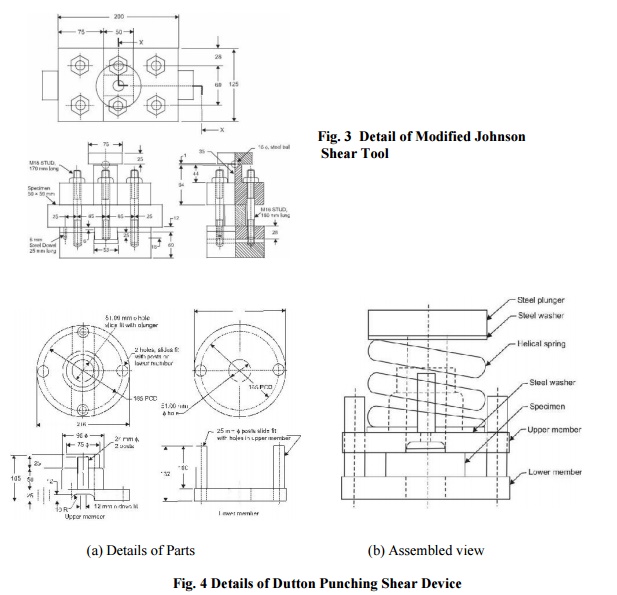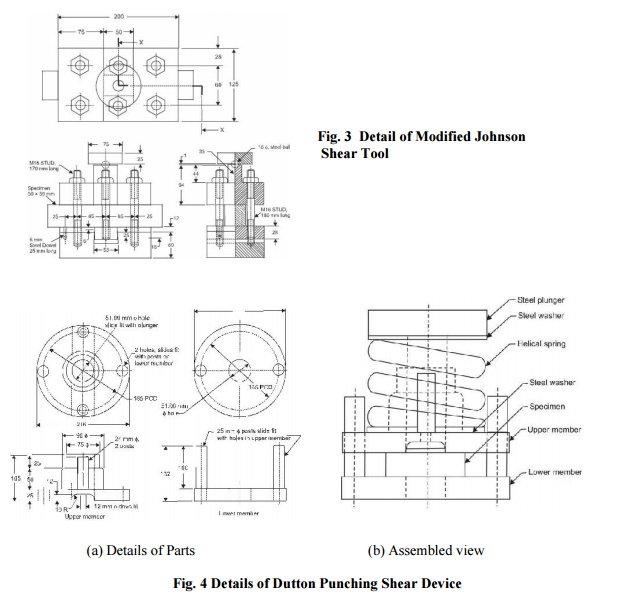Chapter: Civil : Construction Materials: Stones, Bricks,Concrete Blocks
Shear Strength Test (IS: 1121 (Part IV)), Using Jhonson Shear Tool

Shear Strength Test (IS: 1121 (Part IV))
The test is carried out either in
Jhonson shear tool (Fig. 3) or Dutton punching shear device (Fig. 4). Three
test pieces are used for conducting the test in each of the saturated and dry
condition.
Test piece for use in Jhonson
shear tool should be bars 50 × 50 mm in section and not less than 100 mm in
length and that for use with the Dutton punching shear device should be slabs
30 mm in thickness, 100 mm in width and not less than 100 mm in length.
Using Jhonson Shear Tool
The test
piece is carefully centred in the shear tool and the bolts drawn up tightly.
The tool is then centred in the testing machine with the centre of the
spherical block in contact with the centre of the top portion of the plunger of
the shear tool. The speed of the moving head of the testing machine during load
application should not be more than 1 mm/min. During the test, the beam of the
testing machine should be kept constantly in floating position. The shear
strength of test piece is calculated by
S=W/2A
where
S = Shear strength (N/mm2) W = total maximum load
(N)
A = area of the centre cross-section of test piece (mm2)
The average of all the three results separately
for each condition is calculated and taken as the shear strength of the test
piece.
Using Dutton Punching Shear Device
Centre
lines are laid over one surface of the slab. Thickness of the slab is measured
at three points approximately equidistant around the circumference of a 50 mm
circle centred on the intersection of the two center lines. The test piece is
centred in the punching device keeping it under the plunger. The punching
device is then centred in the testing machine with the centre of the spherical
bearing block in contact with the centre of the top portion of the plunger of
the shear device. The speed of the moving head of the testing machine during
load application should not be more than 1 mm/min. During the test, the beam of
the testing machine should be kept constantly in floating position. The shear
strength of the test piece is calculated by
S= WtWi SDT
where
S = Shear strength (N/mm2) Wt = total
maximum load (N)
Wi = initial load (N)
required to bring the plunger in contact with the surface of specimen D =
diameter (mm) of the plunger
T=
thickness (mm) of the specimen
The average of all the three results separately
for each condition is calculated and taken as shear strength of the test piece.

Related Topics